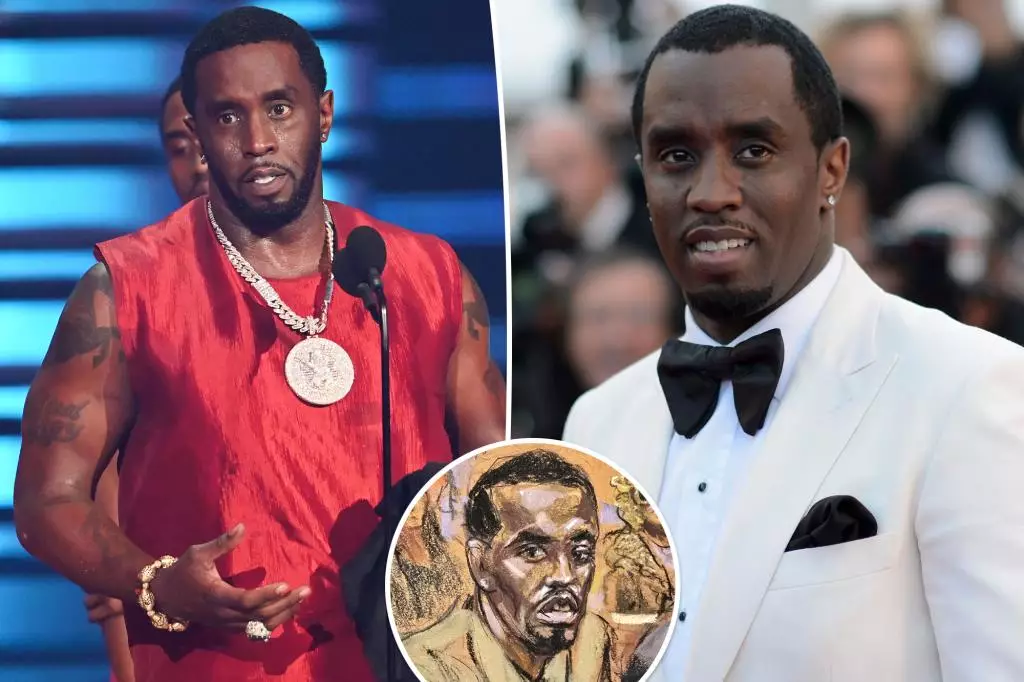In a highly publicized legal issue that underscores the tension between personal privacy and public accountability, a judge in New York has ordered a woman who accused prominent music mogul Sean “Diddy” Combs of sexual assault to reveal her identity. This order pertains to a lawsuit purporting that the incident occurred nearly two decades ago at a party in 2004. As society engages in discussions surrounding sexual assault, the implications of this ruling raise critical questions about the legal system’s balancing act between protecting victims and ensuring fair trial rights for the accused.
Judge Mary Kay Vyskocil’s decision to compel the plaintiff, who has thus far protected her identity under the pseudonym Jane Doe, exposes the complexities of legal processes intertwined with issues of privacy and public scrutiny. While the judge acknowledged the personal and sensitive nature of the allegations, she emphasized that the plaintiff had chosen to associate herself with serious claims against a public figure. By filing a lawsuit against Combs, the judge argues, she has forfeited the privilege of anonymity that is usually upheld for victims of such grave misconduct.
Vyskocil’s ruling represents an important legal precedent concerning the anonymity of plaintiffs in high-profile lawsuits. Victims’ rights advocates often seek to strengthen protections for plaintiffs; meanwhile, defendants, particularly those in the public eye, argue that anonymity can foster unfounded claims that unjustly tarnish their reputations. This tension is amplified in cases involving celebrities, where public interests and the rights of the accused intersect dramatically.
The allegations detail a disturbing encounter in which the plaintiff claims to have been locked in a hotel room with Combs and subjected to sexual violence following threats to her life. This accusation, alongside claims from other alleged victims represented by Texas-based attorney Tony Buzbee, suggests a pattern of serious misconduct extending over several decades. Each claim adds layers to the narrative of power dynamics and exploitation, particularly in the celebrity domain, where fame often complicates the discourse around consent and accountability.
The nature of the accusations also points to a broader cultural reckoning with how sexual misconduct is often hidden within the larger framework of celebrity culture. While the Me Too movement has encouraged more victims to come forward, it also raises questions about the legal processes that follow. How does the legal system protect those who aim to speak their truth while ensuring that justice is served in a fair manner for all parties involved?
Diddy’s legal difficulties are particularly serious and compounded by multiple accusations and a range of legal issues, including charges of racketeering, sex trafficking, and prostitution. These allegations come on the heels of a notable lawsuit filed by the artist’s former partner, Cassie Ventura, which accused him of rape and physical abuse. The rapid settlement of this claim—within 24 hours—without an admission of guilt, illustrates a strategic maneuver that is common in high-stakes lawsuits.
Such complexity raises ethical questions about the efficacy of settlements versus full trials. Numerous alleged victims wish to attain accountability without the accompanying scrutiny and stress of a trial. However, settlements can also be perceived as a way for wealthy defendants to evade responsibility, fueling further public discourse around accountability.
As the narrative surrounding Combs continues to unfold with an impending trial scheduled for May 2025, it beckons a discussion on public perception and media influence surrounding allegations of this nature. Combs’s attorney has maintained his client’s innocence, asserting that numerous lawsuits do not equate to guilt. However, the court of public opinion often trumps legal realities, with the media playing a powerful role in shaping narratives.
In the realm of celebrity, the stakes are particularly high as legal outcomes can either rehabilitate or irreparably harm reputations. For victims, the pursuit of justice is often fraught with challenges, not least of which is the fear of public exposure and backlash. The struggle for balancing these competing interests continues to unfold, highlighting the necessity for thoughtful legal standards that protect individual rights while accounting for societal implications.
As society grapples with issues of sexual misconduct, privacy, and accountability, the case against Diddy stands as a reminder of the ongoing complexities at play. The ruling to reveal the identity of the plaintiff forces a reflection on the intersections of personal sacrifice for the greater good and the implications for those willing to share their stories. Though the road ahead is fraught with challenges, it is essential that the legal framework evolves to prioritize protection and justice for all.
